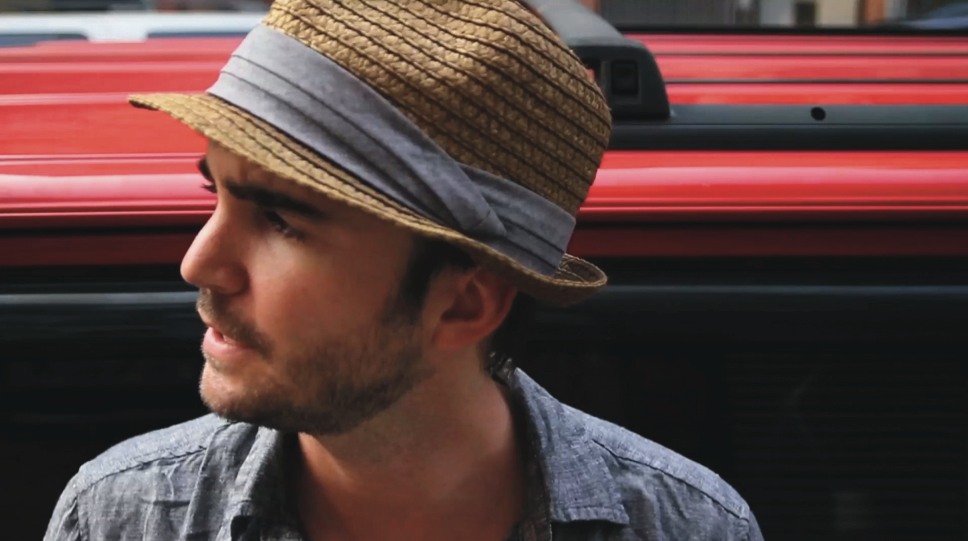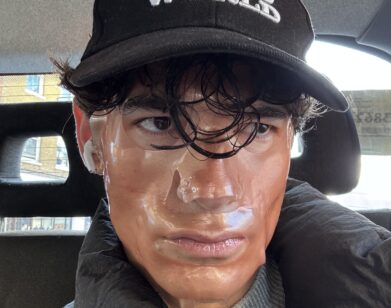DW Gibson Found Lore in a Jobless Place

Work defines us. Especially in a recession, jobs and the workplace are an integral part of American identity, even as they disappear. DW Gibson’s Not Working (OR Books) is both travelogue and intense human dialog, traversing the United States to collect the stories of Americans who have lost their jobs. Inspired by the great oral historian Studs Terkel’s Working, Gibson’s tome is a touching and all-too-necessary text for 2012. From the East Coast through the middle of our country, and on out West, Gibson, armed with a recorder, van, and tremendous pathos, recorded people whose stories contain both tragedy and humor, a stubborn will to survive despite their desperate circumstances. From sharing food with their dogs to taking long walks to starting new careers they never thought they would fall into, Gibson draws candid stories from these Americans. Interviewer on interviewer, we spoke with Gibson about why work defines us, water coolers, aspiring, what we do when we lose work, and how we can change this loss into something transformative and beautiful.
ROYAL YOUNG: I want to talk about work as a core part of identity. Why that is?
DW GIBSON: What runs throughout—no matter class, social situation, how much you love your job or hate your job when you wake up in the morning, put on your clothes and you don’t have a place to go—everything is thrown off. Everything is questioned. You have to wrestle with that question throughout the day as you watch Dr. Phil, as you try to fix the broken sink in the bathroom, as you try to apply for jobs. As you try to seem like you’re holding it together, you cannot escape it. Even if you know it’s layoffs or downsizing, you can’t stop that part of your brain that is like, “Hold on, though, why did they pick me?”
YOUNG: It sounds like a huge sense of isolation. A support system is ripped away from you, even if it’s just that morning coffee-cart exchange, where the guy knows your order before you get there.
GIBSON: It’s totally that! Think of the motif of the water cooler, which is now dated, but just standing there and talking. Again, even if it was a job you really hated, you knew you were needed. Then you wake up one day and nobody needs you.
YOUNG: What lessons do you think that teaches? Is there a strength in self-reliance built into that experience?
GIBSON: Positively. This one guy in Pittsburgh is a private investigator who represented entrepreneurs who had to close their businesses. After he filed for bankruptcy, he said every morning he got up and walked. It forced him to go so slowly in his neighborhood and see people he’d never seen. See businesses he had never noticed before and wonder about them.
YOUNG: We live in such a driven, fast society. There’s a kind of beauty in being forced to slow down and think about your life in an almost existential way.
GIBSON: Yes. One guy in particular, James in Fresno, he was a mortgage broker and had a horrible experience doing that job at a seedy mortgage company; and after he lost that job, he went through this period where he looked for everything he could carve out of his life, the bare minimum he could survive on and ended up getting a job at Trader Joe’s, where he is much happier. It’s allowed him to carve out so many excess possessions from his life. A lot of people echoed that sentiment.
YOUNG: What about with younger people whose dreams go outside the system? Aspiring artists?
GIBSON: Labor in 2012 is a freelance world, and that plays into everybody’s wants in a perhaps unhealthy way. Companies love it, because no benefits, they can get rid of you. And employees like it, particularly those that are poets or photographers or whatever, because they feel like it gives them space to work from home and do what they want in life. But in reality, working from home, you’re actually doing three jobs and working a hell of a lot more. It may play to all of our hands, but I don’t see it as sustainable.
YOUNG: We all feel like we’re winning, I suppose.
GIBSON: Yes, and I know that. That’s my life.
YOUNG: I’d like to talk more about some of the really dark places not working can take us.
GIBSON: One person said, “I don’t know how desperate I should be right now.” You get to a place and you don’t know if you should apply for food stamps. Another way desperation comes into play is health. A lot of people are riding it out without health insurance looking for any and all solutions.
YOUNG: It seems like just talking to you would help a lot of people out of this feeling of isolation.
GIBSON: A lot of people expressed anxiety, like wow that was difficult. But also there was a lot of gratitude, like that felt great! Something about the process of telling their stories was cathartic.
NOT WORKING IS OUT NOW.






